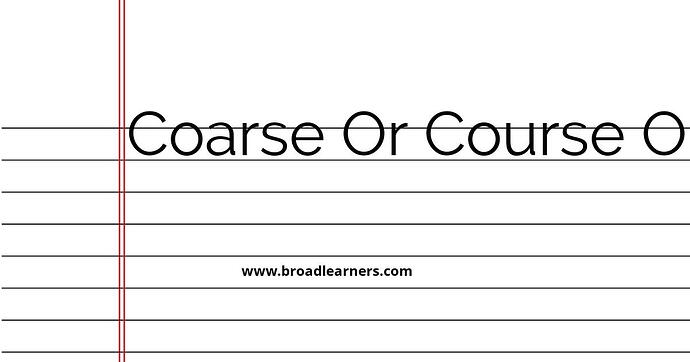'Coarse', 'course', and 'coarse' are commonly confused words in English grammar. Understanding the difference between 'coarse', 'course', and 'coarse' is important to use them correctly in written and spoken English.
'Coarse' is an adjective that describes something rough, harsh, or lacking refinement. It is used to describe the texture or quality of something.
'Course' can be used as a noun or an adjective. As a noun, it refers to a series of educational lessons or a path or route. As an adjective, it means rough or uneven.
'Coarse' is an adjective that describes something rough or made up of large particles. It is often used to describe the texture of materials like sand or fabric.
Let's take a closer look at the meanings and usage of 'coarse', 'course', and 'coarse'.
| 'Coarse' | 'Course' | 'Coarse' |
|---|---|---|
| The word 'coarse' is used to describe something rough, harsh, or lacking refinement. | The word 'course' can be used as a noun or an adjective. As a noun, it refers to a series of educational lessons or a path or route. As an adjective, it means rough or uneven. | The word 'coarse' is used to describe something rough or made up of large particles. |
|
|
|
To remember the difference between 'coarse', 'course', and 'coarse', it can be helpful to remember that 'coarse' describes something rough or lacking refinement, 'course' refers to a series of lessons or a path, and 'coarse' describes something rough or made up of large particles.
Here are some examples of correct usage:
- I prefer the texture of coarse sandpaper.
- She signed up for a cooking course at the culinary school.
- Be careful not to use coarse language in a professional setting.
Remembering the correct usage of 'coarse', 'course', and 'coarse' will improve your grammar and communication skills.
